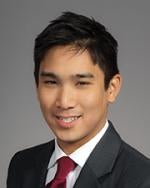Addressing the admissibility of expert testimony on damages issues, the U.S. Court of Appeals for the Federal Circuit upheld the district court’s admission of expert testimony based on a fact-intensive analysis that was not peer reviewed or published. The Federal Circuit also agreed that the expert could assume that the frequency of a feature’s use is proportional to its value, and also that an expert can rely on evidence from consumer surveys as long as experts in the field reasonably rely on those surveys. Summit 6, LLC v. Samsung Elecs. Co., Nos. 13-1648, -1651 (Fed. Cir., Sept. 21, 2015) (Reyna, J.).
After a jury trial resulting in a $15 million damages award, Samsung challenged the district court’s admission of Summit 6’s expert’s (Mr. Paul Benoit’s) reasonable-royalty analysis. The asserted patents related to the processing of digital photos, such as in a mobile phone with a camera. Mr. Benoit analyzed Samsung’s cost and revenue spreadsheets to determine the revenue derived from a phone’s camera. Next, Mr. Benoit relied on surveys of camera users to determine the percentage of users who used the infringing methods. Based on those surveys, the revenue associated with a camera, an analysis of Samsung’s profit margins, and the Nash Bargaining Solution—which Samsung did not challenge—Mr. Benoit estimated a reasonable royalty should be $29 million.
Under Daubert, the trial judge plays a gatekeeping role for the admission of expert testimony. The trial judge determines whether the expert’s methodology is scientifically valid and tied to the facts of the case. The trial judge may consider a number of factors, including whether the methodology is scientific knowledge that will assist the trier of fact, whether it has been published in peer-reviewed journals and whether the methodology is generally accepted. In contrast, the jury determines whether the expert is credible and whether the expert’s conclusions are correct.
On appeal, the Federal Circuit concluded that Mr. Benoit’s damages methodology was based on reliable principles and was sufficiently tied to the facts of the case. Samsung argued that Mr. Benoit’s methodology was inadmissible because it was not peer reviewed or published. The Court disagreed, explaining that Mr. Benoit’s fact-based analysis would have been impractical, if not impossible, to subject to peer review and publication. The Court also found that the district court did not abuse its discretion by allowing Mr. Benoit to correlate the feature’s use with value. As the Federal Circuit explained, “an invention used more frequently is more valuable than a comparable one that is used less frequently.” Finally, the district court did not err by allowing Mr. Benoit to rely on consumer surveys from third parties. Mr. Benoit was not required to be a survey expert as long as experts in the field reasonably rely on consumer surveys. Any flaws in Mr. Benoit’s credibility, data, or factual assumptions went to the weight of the evidence, not its admissibility.




 />i
/>i
